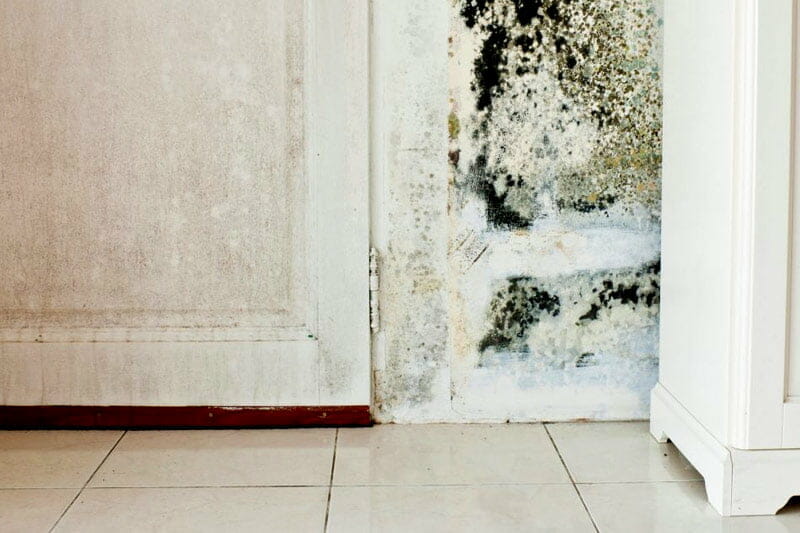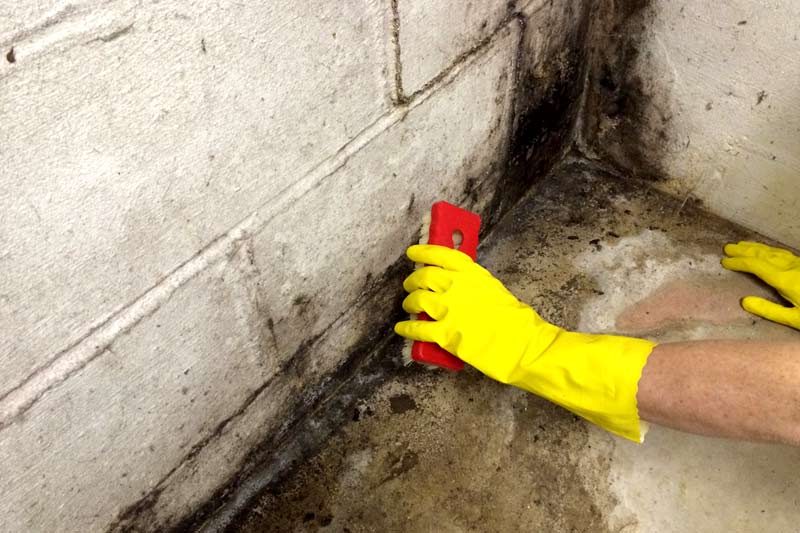Mold commonly occurs in our environment. It is abundant in the air outside, but to flourish indoors, it requires a significant amount of water, humidity, or moisture.
If you sense the smell of mold in your apartment you probably have some mold growth. Part of Iowa’s landlord-tenant law is Iowa Code 562A.15, requires landlords to maintain their properties and comply with local housing codes affecting health and safety.
In this article, you will find everything you want to know about landlord-tenants rights and responsibilities regarding mold problems in Iowa State.

Introduction
Iowa State landlord-tenant laws regarding mold require landlords to maintain their properties and comply with local housing codes affecting health and safety, which includes mold. Landlords and tenants have a shared responsibility to keep a tenant’s apartment safe and habitable.
Landlord-tenant law in Iowa regarding mold
Safe, comfortable, clean, and free of unhealthy allergens homes are the least we can hope for.
Iowa Code 562A.15 requires landlords to maintain their properties but it must not be forgotten that combating mold is a shared responsibility between both the landlord and the tenant.
Landlords responsibility
The responsibilities of the owner consist of making the apartment habitable and without damaging water pipes, water leaks, or water damage from previous leaks.
Mold growth can be triggered by leaking pipes, roofs, and gutters so the landlord must fix all these problems and prevent their occurrence in a timely manner.
Tenants responsibility
Tenants have to use the provided ventilation system in both the kitchen and the backroom to reduce the condensation from cooking, running the dishwasher, and hot baths and showers.
Reach out to your landlord if you find mold in your home. Explain to your landlord about the mold problem and provide formal written notice with a request to solve the problem.
If the mold is a result of the tenant’s neglecting behavior, then the landlord can’t be held responsible for repairs and costs of the clean-up.
Resource: Full list of states mold laws
Useful tips for action when mold appears
Tenants should follow the following tips if they believe that mold has taken their apartment. These tips are useful in case you need to seek justice in court.
- The first thing that tenant should do is document the problem;
- A picture can be worth a thousand words so take a picture of any visible mold growth on walls and floors;
- If there are any mold tests conducted by you or the landlord document the results;
- If you can contact the previous tenants and ask if they have had the mold problems during their stay in the same apartment;
- Find legal assistance to get out of the lease without penalties.
Breaking the lease in Iowa
It is possible to break the lease because of mold if you can prove that mold is an imminent threat to your health. Some landlords may require a doctor’s note or documentation from an environmental testing firm.
On the other hand, if you don’t want to break the lease due to a mold problem, the landlord is responsible for resolving the problem and hiring the experts to take care of mold and all moisture issues that may have caused the mold problem.
How long does the landlord have to fix the mold problem in Iowa State?
After receiving the notice about the mold growth and mold presence in the rental unit, the landlord has seven days to react and fix the problem.
Move out if the landlord doesn’t make the repairs. Move out by the date specified in the notice. If you are not out by the date specified in the notice, the landlord could start eviction procedures against you.
If the landlord makes all necessary repairs within 7 days the lease continues and you cannot move out.

Can you sue the landlord for mold in Iowa State?
Yes, you can. You can seek justice in court in Iowa State to prove that the landlord breached his duty to protect your health and safety and has violated the rental agreement.
There are situations in Iowa where landlords include mold clauses in rental agreements to protect themselves from liability in cases of illness caused by mold. These clauses provide an exemption from responsibility to the landlord.
You can hope for success in Iowa courts when suing for mold exposure if the mold was caused by the landlord’s negligence. Understanding Iowa’s Residential Landlord-Tenant Act will provide you with a strong claim in court.
Suing for mold in Iowa could be tough in most cases, so be sure that you have all the necessary evidence to support your case.
Tenant relocation due to mold in Iowa
If the mold is severe enough to cause the apartment to be uninhabitable, tenants need to be relocated. If this is the case, landlords are usually required to remediate the mold at their expense unless the mold is caused by the tenants’ behavior.
The lease terms and the laws of the applicable jurisdiction will answer the question of who covers the costs of any needed relocation of the tenants.












